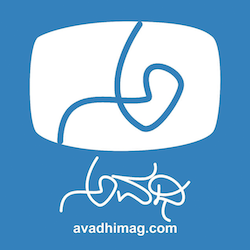ಕೇಂದ್ರ ಸಾಹಿತ್ಯ ಅಕಾಡೆಮಿ ಇತ್ತೀಚೆಗೆ ಕಲಬುರ್ಗಿಯಲ್ಲಿ ‘ಸಮಕಾಲಿನ ಸಣ್ಣಕಥೆಗಳ ಓದು ಮತ್ತು ಸಂವಾದ’ ಹಮ್ಮಿಕೊಂಡಿತ್ತು. ಬಸವರಾಜ ಡೋಣೂರು ಮತ್ತು ಮಹಾಂತೇಶ ನವಲಕಲ್ ಕಥೆಗಳನ್ನು ವಾಚಿಸಿದ್ದರು.
ಈ ಕುರಿತು ಕೆ ಎಂ ವಿಶ್ವನಾಥ ಮರತೂರ ಅವರು ಬರೆದ ಸಮೀಕ್ಷಾ ಬರಹ ‘ಅವಧಿ’ಯಲ್ಲಿ ಪ್ರಕಟವಾಗಿತ್ತು. ಅದು ಇಲ್ಲಿದೆ-
ಇದಕ್ಕೆ ಕಥೆಗಾರ ಮಹಾಂತೇಶ ನವಲಕಲ್ ಅವರು ಪ್ರತಿಕ್ರಿಯೆ ನೀಡಿದರು. ಅದು ಇಲ್ಲಿದೆ-
ಈಗ ಮತ್ತೊಬ್ಬ ಕಥೆಗಾರ, ಕಲಬುರ್ಗಿಯ ಕೇಂದ್ರೀಯ ವಿಶ್ವವಿದ್ಯಾಲಯದ ಪ್ರೊ ಬಸವರಾಜ ಡೋಣೂರು ಅವರು ಬರೆದ ಪ್ರತಿಕ್ರಿಯೆಯನ್ನು ನೀಡುತ್ತಿದ್ದೇವೆ
 Prof Basavaraj Donur / CUK / Kalaburagi
Prof Basavaraj Donur / CUK / Kalaburagi
I have nothing to say about what Mr Vishwanath has written on and about the story that I read our at a function in Kalaburagi last week.
Mahantesh Navalkal who also read out his story on the same occasion expressed his disagreement with what Vishwantah wrote and as a fellow story writer I can understand his concerns. Navalkal is a very significant short story writer in Kannada and the story he has read admits of various interpretations and it is certainly better than the story that I presented.
I do not say that I am a major writer in Kannada nor do I say that what I write has no stuff in it and hence does not deserve any merit. But I leave everything to time. It is only time that gives right answers at a right time to what we say and write and it proves who is who and what is what.

Of late I began to realize that we Indians fail to analyse or appreciate a work of art. We either unreasonably praise a work of art to the sky or cruelly condemn it and burry it.
We must try to understand both the merit and the limitations of a writer. A finished poem or a story is both a merit and a limitation of a writer. When I write a poem and publish it that is an end of it. I can not do anything about it. It is no longer in my control. It is in the public domain. The readers have freedom to say or write anything they like or think correct about it.
A writer need not bother about it. But when we criticize or analyse a work of art we should bear in mind that we must try to find out what the writer is trying to say in his work of art, whether he has succeeded in achieving what he intended or not. We should be interested in the periphery but in the core. If a critic or a reader either unreasonably praises a work of art or condemns for what we call non-literary reasons he is then commuting a sin and an immoral act.
When we evaluate a work of art we should remember that we are not dealing with a dead body but with a living organism. When we deal with any living being we must be very decent and very responsible. A critic has got to be humble and decent.










0 ಪ್ರತಿಕ್ರಿಯೆಗಳು
Trackbacks/Pingbacks